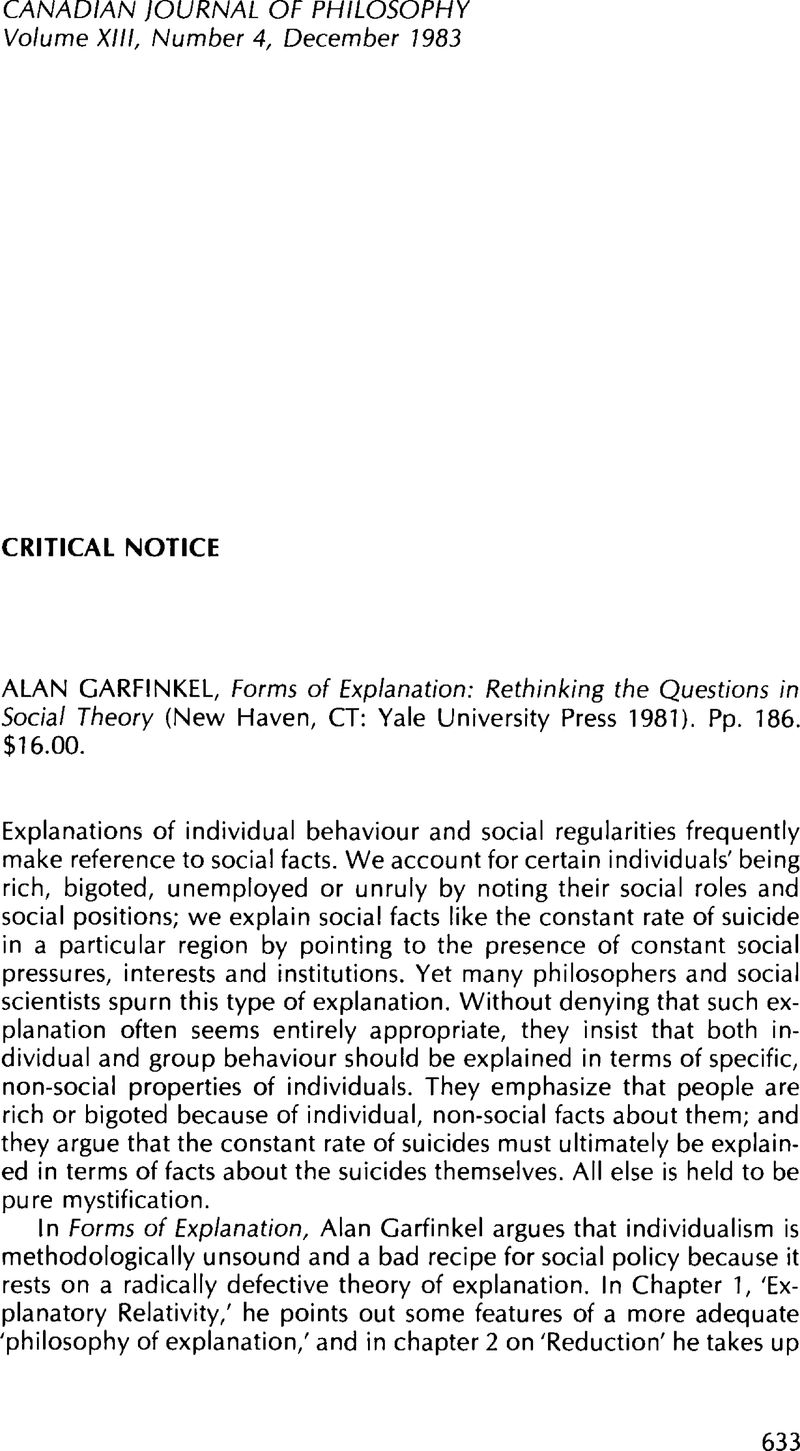No CrossRef data available.
Article contents
Alan Garfinkel Forms of Explanation: Rethinking the Questions in Social Theory (New Haven, CT: Yale University Press 1981). Pp. 186. $16.00.
Review products
Published online by Cambridge University Press: 01 January 2020
Abstract

- Type
- Critical Notice
- Information
- Copyright
- Copyright © The Authors 1983
References
1 Such structural explanation, it should be noted, does not entail that individual behaviour is coerced by mysterious external forces. We may explain behaviour in terms of social roles and pressures yet renounce the view of classical ‘structuralists’ like Durkheim that ‘society’ forces individuals to behave as they do.
2 Another interesting point that Garfinkel makes in connection with the unsuitability of hyperconcrete explanations is that they are of little value insofar as they only hold for the exact initial conditions specified. Rigorous accuracy in and of itself is useless in science since ‘any real object is known only approximately’ (170).
3 Cf. p. 161 where redundant causality is said to ensure that ‘the overall system structure and dynamics’ would remain the same were we to ‘remove a few individuals’ or ‘change the initial conditions or the nature of the individual dynamics over a wide range.’
4 That there is no mention of the pragmatics of explanation in this discussion of reductionism is in line with Garfinkel's practice but not his theory. For Garfinkel, 'reduction, which is on its face an ontological question, is really a question about the possibility of explanation’ (49). But it might also be argued that reduction is only reasonably seen as a question about the possibility of explanation if explanation is understood in a traditional, ‘non-pragmatic’ way. This view is briefly defended in my ‘Putnam and Reduction’, Cognition, 3 (1974) 289-93.
5 For more details, see Laycock's, Henry review of Forms of Explanation in Canadian Philosophical Reviews, 2 (1982) 93-6Google Scholar.
6 At its worst, this kind of individualistic thinking leads to horrifying suggestions such as the proposal - which appeared in 1967 in the Journal of the American Medical Association - that rioters be given psychosurgery (see p. 154).
7 In writing this article I have benefited from the comments of Hilliard Aronovitch, Henry Laycock and Kai Nielsen.


